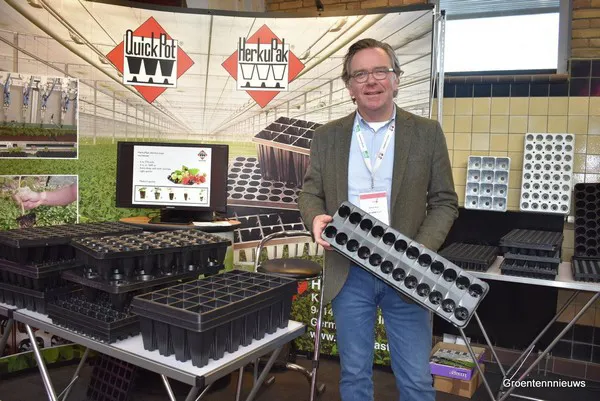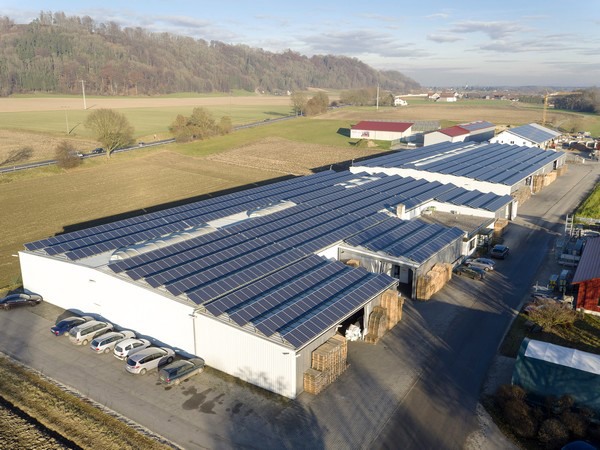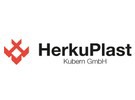A tray producing company that tries to urge growers to buy fewer trays. That might seem strange, but the view of the HerkuPlast team is set on the long term. “The future growth of the horticultural industry depends also on the sustainability of the industry. Using durable trays when possible and recycling them is one of our ways to contribute to this”, says Alfred Boot with HerkuPlast.
 Alfred Boot with HerkuPlast
Alfred Boot with HerkuPlast
Shift in demand for trays
HerkuPlast has been in the industry since 1972 and has seen a shift in demand for the trays in the indoor growing market. Labour saving issues for example urge growers to look into solutions like full automatic planting, transplanting and harvesting – developments that have an impact on how plants are being produced and leading to new methods. “Then there is the ongoing trend in more and more use of glue plugs, paper pots, pressed pots and growcoons – these all ask for unique tray solutions. Back in 2000 we only had 24 trays in our assortment – right now there are almost 500 models in our catalogue – a number that would rise to about a thousand if we would include all custom-made editions. It’s important to answer the growers' demand.”
Another trend in horticulture is sustaining the industry. The use of plastic is discussed broadly in the horticultural industry, particularly the question of how to reduce the use of plastic. “Trays are a small, but an important part in this cycle”, says Alfred. “In that it is important to look at the complete story and base your decision on that complete story – including the production costs, recyclability and energy costs.”
Reusable or one-way trays
The team with HerkuPlast offers various lines to take into consideration: the reusable QuickPot line, consisting of polystyrene trays from first class recycled sources, and the HerkuPak cutting trays, one-way trays that are made out of lighter material. “If we are able to pick up old plastic and reuse this easily for producing a new product, that can be the optimal solution in terms of sustainability – yet this is often not the case since horticultural companies are spread out all over the globe, thus we see how our QuickPot line can help growers improve the sustainability of their business”, Alfred explains. “The recycled material that is used for the QuickPot trays receives the best UV treatment so the trays can stand the negative effects of light, thus enabling growers to use the trays as long as possible. They have a lifespan that easily endures over ten years, whereas the cutting trays are recycled after one year of growing.”
“With a lifespan of 10 years, the durable trays use up to 70% less material compared to one-way trays”, Alfred continues. “for instance, a one-way Danish size tray 77 weighs 160 grams, a durable tray is 400 grams. With a lifespan of 10 years, you will need 1,600 grams over this period for the one-way trays, that is, if you use the trays only once a year. The difference can be double or triple when you have 2 or 3 cycles a year ! So imagine 4800 grams for 10 years of growing in a light tray versus 400 grams of growing in a durable, easy to handle tray!"
Energy savings
In addition, HerkuPlast has calculated that the amount of energy saved when using durable trays can be approximate 65%. The energy needed to produce, transport and recycle durable trays is substantially lower then with light, one-way trays.
“After the trays have been used, they have again a high recycle value”, he adds. “Then there’s the freight pollution in bringing the trays from the factory to the growers – and the recycle pick up and recycling cost/waste. If the trays have to be transported from the factory to the grower each year and have to be picked up there as well, it adds up to 20 times transport over ten years. With durable trays we can reduce that number.”

A bonus of pretty high relevance to the grower is that though long life trays cost 3 to 4 times more than one-way models, the total costs for using long life trays are significantly lower. On the other hand, that also means that the turnover for HerkuPlast is lower. What’s the catch? Alfred explains how the company is looking for a long-term ROI and that can only happen if the industry is flourishing. “The future of the horticultural industry depends on the sustainability of the industry. We contribute to this with our environmental strategy. This involves many aspects: production standards, material standards, solutions for re-use”, he sums up. “We’ve invested in solar panels to cover a substantial part of our energy needs, but that is only a small drop in the bucket. Our biggest investment can be made by helping the industry reuse, reduce and recycle their plastics.”
For more information and samples:
HerkuPlast
Alfred Boot
export@herkuplast.com
www.herkuplast.com
